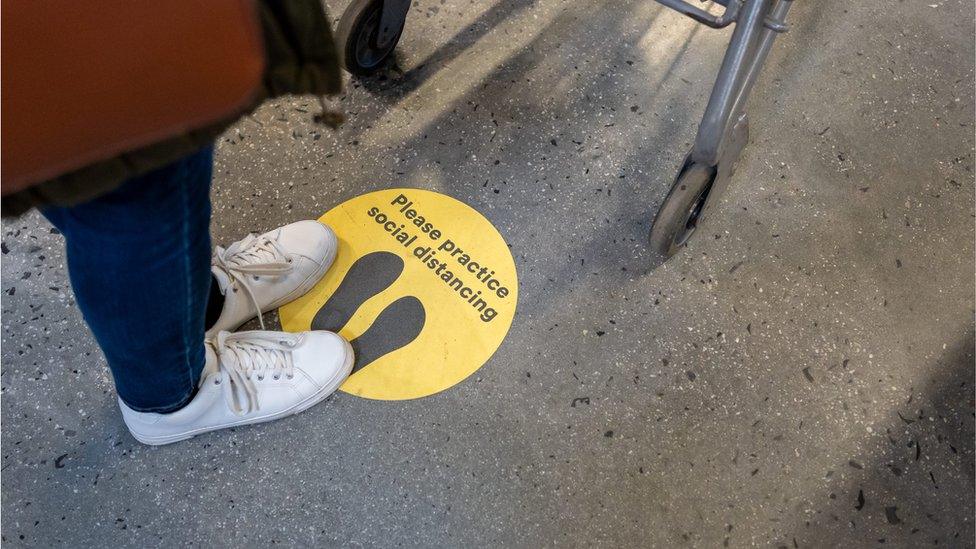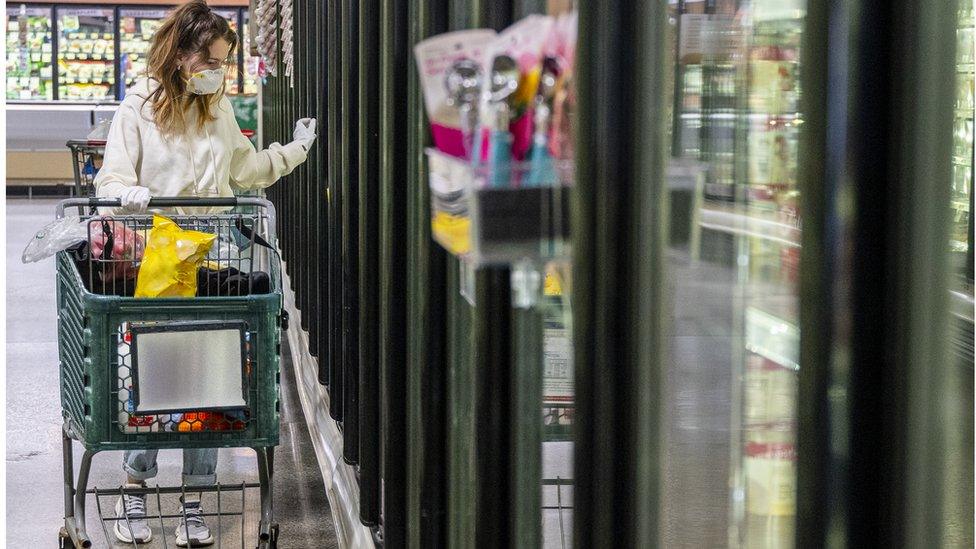Two-metre distancing may be eased for work
- Published

Employers will not be required to maintain social distancing of two metres between workers under government proposals to reopen the UK's workplaces.
In one of the draft government strategy papers, seen by the BBC, employers are encouraged to do so where possible but where it's not, additional measures should be considered, it suggests.
These should include additional hygiene procedures, physical screens and the use of protective equipment.
However, the section of the documents marked PPE is currently empty, apart from a promise that "more detail" will follow.
Union leaders have expressed concerns, saying few firms currently have this equipment and efforts to acquire it could see them competing with the NHS for scarce and essential supplies.
Worker safety
Employers are also encouraged to stagger arrival and break times, minimise the use of equipment or office space by many users, and avoid chopping and changing worker rotas.
Workers considered vulnerable (for instance over 70, pregnant, or with underlying organ or respiratory problems) but who cannot work from home should be put in the "safest possible roles" in the workplace.
The guidance remains clear that those who can work from home should continue to do so, which suggests office workers will not be returning to work for many weeks - or even months - to come.
Companies, business groups and unions were given until 10pm last night to respond to these proposals and the government will present updated plans on Thursday.
The guidance in the leaked documents covers the whole of the UK but devolved governments have the power to make their own decisions on how businesses get back to work.

Separately, rail unions have written to the Prime Minister expressing concerns about plans by the rail operating companies to increase the number of trains in service.
A joint letter from ASLEF, RMT and TSSA described plans to run more trains as "completely unacceptable" as long as there is no agreement on how services can be increased whilst protecting workers and passengers.
Re-opening the economy will take more than modified working practices.
Workers must be confident they are safe.
Companies must be confident they won't be sued if they get it wrong.
And consumers must be confident enough to spend money.
The government's repetitive message to stay at home to protect the NHS and save lives has been largely effective. Changing the record will be difficult.
